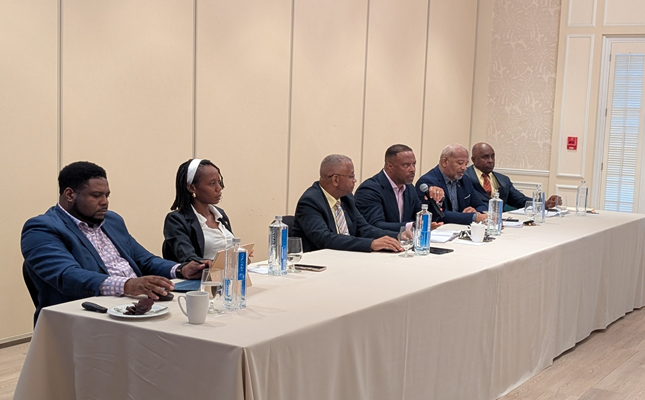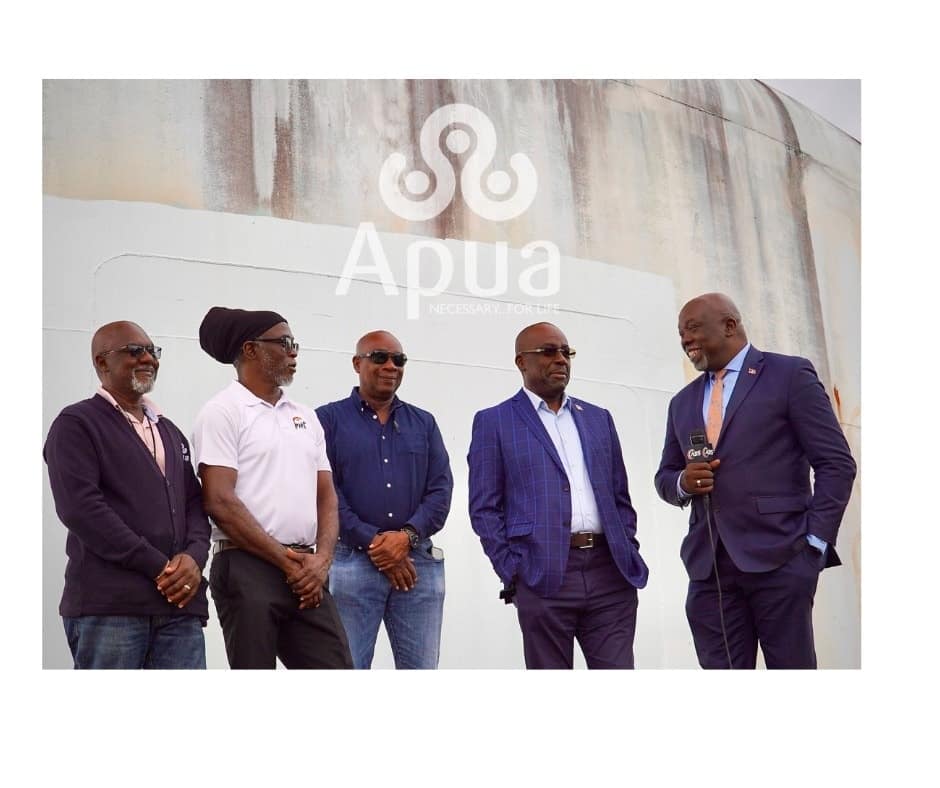The Nevis Island Administration (NIA) has announced a public town hall meeting to discuss the proposed Destiny Special Sustainability Zone (SSZ) project, underscoring its commitment to transparency and community engagement. Scheduled for October 27, 2025, at 7:00 p.m. in the St. Paul’s Anglican Church Hall in Charlestown, the event invites residents to voice their opinions and gain insights into the development plans. Premier Mark Brantley emphasized the importance of public participation in shaping the island’s sustainable future. The NIA has already conducted consultations with key stakeholders, including tourism representatives, religious leaders, and business communities, as part of its inclusive approach. Additional meetings with other groups, such as the Police High Command and Nevis Sixth Form College students, are planned. Premier Brantley encouraged citizens to attend the town hall, highlighting the government’s dedication to open dialogue and collective decision-making. The NIA reaffirmed that public involvement is essential to ensuring that the development aligns with the aspirations of the Nevisian people.
博客
-
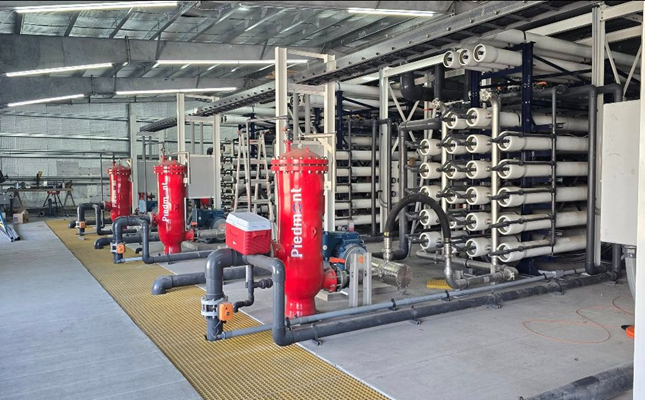
Desalination plant nears completion as Government moves to restore 24-hour water supply in Basseterre
The Government of Saint Kitts and Nevis is making significant strides in addressing the nation’s water supply challenges as the two-million-gallon-per-day Desalination Plant at the C. A. Paul Southwell Industrial Park approaches completion. This critical infrastructure project is poised to restore a 24-hour water supply to Basseterre, the capital city, marking a major milestone in the Federation’s efforts to improve water accessibility. Minister of Public Infrastructure, the Honourable Konris Maynard, announced that the plant was powered up for the first time on October 16, 2025, initiating a series of rigorous tests on its treatment processes, including reverse osmosis systems. These tests are expected to continue for several weeks to ensure operational efficiency. Minister Maynard emphasized the government’s commitment to alleviating water shortages, particularly in Saint Kitts, during a National Assembly sitting on October 17, 2025. Once operational, the plant will provide a reliable water source to meet the increasing demands of households and industries. Beyond Basseterre, efforts to enhance water availability are also underway. A recent hydrological drone survey identified 17 potential sites for underground potable water, with drilling of new wells set to begin in December 2025. This comprehensive approach underscores the government’s dedication to securing sustainable water resources for the nation.
-
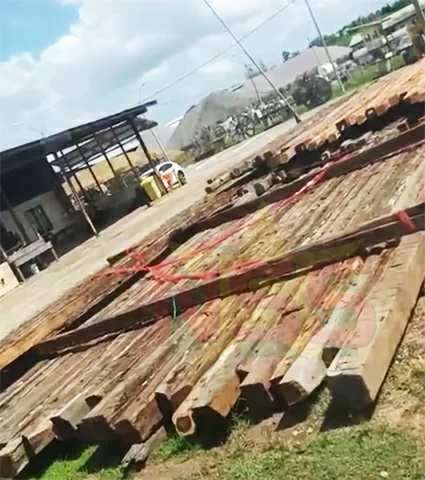
SBB stuit op bijkans 2.160 illegale bruinhartpalen bij EBS
In a startling revelation, the Foundation for Forest Management and Supervision (SBB) has identified significant irregularities during a follow-up inspection at the premises of Energie Bedrijven Suriname (EBS) on Bethesdastraat. The inspection, which began on October 1, 2025, and is still ongoing, uncovered 2,159 brownheart timber poles with serious violations, a dramatic increase from the initial report that flagged 508 suspicious poles. The findings have been detailed in a second report, now forwarded to the Public Prosecutor’s Office. The SBB report highlights that the poles exhibit signs of illegal logging, with multiple infractions observed during field inspections. These include missing origin information (marked only as ‘sold’), poles with ‘retribution paid’ status but lacking mandatory transport tickets, reused labels, and the absence of legally required labels. The SBB emphasized that timber of suspected illegal origin should have passed at least one checkpoint, where transport tickets are presented to forestry officials and registered in the SFISS system—a step that was notably skipped. The report underscores that the inspection was conducted on poles currently in a seized state at the EBS site.
-
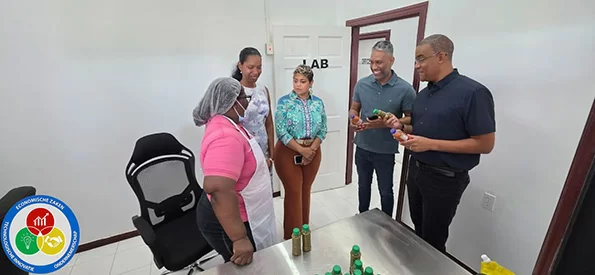
Suriname-Guyana handelsrelaties gaan nieuwe fase in
Andrew Baasaron, Suriname’s Minister of Economic Affairs, Entrepreneurship, and Technological Innovation, recently concluded a series of field visits in Guyana as part of a working trip aimed at fostering bilateral economic collaboration. Accompanied by Guyana’s Minister of Tourism, Industry, and Commerce, Susan Rodrigues, Baasaron toured key facilities, including the Guyana Marketing Corporation (GMC), a processing plant, and an industrial site. The visit followed high-level discussions between the two ministers on joint initiatives in tourism, trade, and industrial development. At the Guyana Shop, a hub for promoting local products for both domestic and export markets, Baasaron praised Guyana’s organized agricultural and agro-processing sectors, calling it an inspiring model of government-private sector collaboration. Discussions at the processing facility explored the potential for establishing a similar structure in Suriname to support small and medium-sized enterprises (SMEs) in product development and export. Baasaron emphasized that such efforts align with Suriname’s goals of strengthening its non-oil sector, enhancing regional food security, and diversifying exports. The delegation also engaged with local entrepreneurs and officials at the industrial site to gain insights into Guyana’s approach to industrial projects, which could inform the development of industrial zones in Suriname.
-
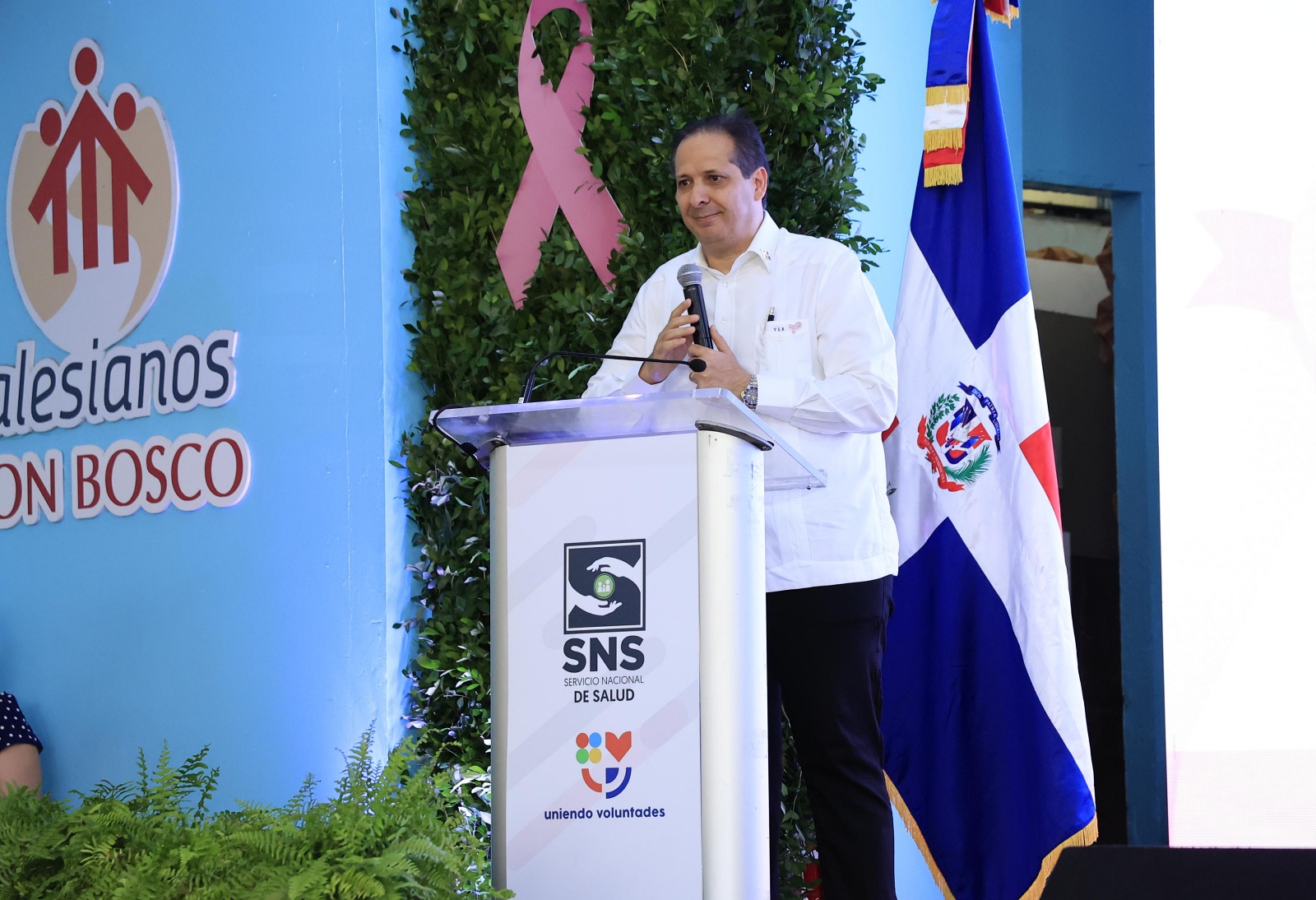
ChequéateRD’ program reaches 124,000 cancer screenings in four years
The Dominican Republic’s national cancer screening initiative, ChequéateRD, has achieved a significant milestone by conducting 124,000 screenings since its inception in 2021. The program, which focuses on the early detection of breast, cervical, and prostate cancers, is set to continue its operations through September 2025. This collaborative effort between the National Health Service (SNS) and the First Lady’s Office has been instrumental in providing free diagnostic and preventive services nationwide. Utilizing a network of 13 prioritized hospitals and 512 mobile health campaigns, ChequéateRD has successfully delivered critical medical care to underserved communities. At the program’s fourth-anniversary celebration, First Lady Raquel Arbaje reaffirmed her dedication to expanding the initiative, emphasizing its mission to bring life-saving opportunities to those in greatest need. Dr. Mario Lama, Director of the SNS, underscored the program’s success in reducing cancer mortality, noting that early detection through mammography can identify breast cancer up to two years before it becomes palpable. To date, the program has screened 89,153 women and 34,603 men, with 354 cancer diagnoses confirmed via biopsy and 276 patients currently receiving treatment, highlighting the program’s crucial role in timely intervention.
-
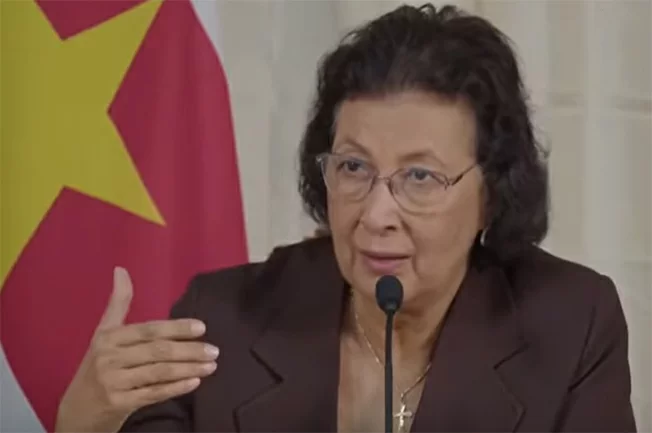
President: Geen militaire acties in de regio; wel strijd tegen drugs
In a firm statement during a press conference on Friday, President Jennifer Simons of Suriname unequivocally declared that her country will not support any military intervention by the United States against Venezuela. This announcement comes amid reports that the US has conducted six attacks on vessels in Venezuelan waters, resulting in at least 27 fatalities, as part of what has been labeled as ‘counter-narcotics operations’ by international media outlets. President Simons emphasized that Suriname’s foreign policy remains steadfastly rooted in principles of non-intervention, neutrality, and peaceful conflict resolution. ‘We are friends with both the United States and Venezuela, as well as Guyana and Trinidad. Suriname’s sole desire is to foster a region of peace. We do not want war in the Caribbean or South America,’ she stated. While acknowledging the importance of international cooperation in combating drug trafficking, the President underscored that such efforts must adhere to the rule of law and respect for human rights. ‘We have abolished the death penalty. Even those guilty of drug trafficking face imprisonment, not execution. Extrajudicial killings are not our way,’ she added. The issue has been extensively discussed within the Caribbean Community (Caricom), with President Simons expressing understanding for the pressures faced by some governments but reiterating Suriname’s refusal to endorse any stance that legitimizes war. The core of Suriname’s position, as outlined by the President, includes: no military escalation or invasion in the region, active support for combating drug-related crime, and a commitment to peaceful diplomacy within the framework of international law. ‘We urge all parties to engage in dialogue. No to war. Yes to cooperation against drugs—but never through extrajudicial executions or armed interventions,’ she concluded.
-

News : Zapping…
Haiti continues to face significant challenges as it navigates a complex landscape of violence, historical commemoration, and developmental progress. In Kenscoff, Mayor Jean Massillon reported that armed bandits have killed between 400 and 450 people since January 2025 while attempting to seize control of the town. The violence has also resulted in extensive material damage, further exacerbating the region’s instability. Meanwhile, Cap-Haïtien Cathedral hosted a solemn Te Deum on October 17, 2025, to mark the 219th anniversary of the assassination of Jean-Jacques Dessalines, Haiti’s independence hero and national founder. The ceremony, filled with prayers and songs, honored Dessalines’ legacy of justice, sovereignty, and unity. In a significant political development, the Haitian government has decided to abandon the proposed constitutional referendum following a technical opinion from the Provisional Electoral Council (CEP). The unspent funds will be redirected toward organizing the next elections. On the economic front, Haiti secured a $110 million investment from the Inter-American Development Bank (IDB) to boost agricultural productivity and modernize transportation infrastructure. This funding is part of the 2025 Agenda and 2026 Plan, aimed at strengthening economic ties and technical cooperation. Additionally, a strategic meeting was held between Haitian leaders and security forces to address the country’s security situation and coordinate efforts to protect the population and advance the electoral process. International support was also evident, with the French and U.S. embassies expressing solidarity with Haiti and honoring Dessalines’ legacy.
